NC Mountain rifle signed (M .G) for Mathew Gillespie. Mathew was born 7/23/1788 in the Old Pendleton District near Easley SC. His father, John Gillespie, moved the family to the East Fork area of present day Transylvania County NC circa 1799. There he built a water powdered "gun mill". Mathew and his brothers William G. and Robert Harvey G. were taught to build the well known NC Gillespie rifles. Mathew lived in East Fork until his marriage to Elizabeth Sitton of Mills River, Henderson County NC. Elizabeth was the daughter of iron works owner Philip Sitton. Mathew probably met Elizabeth on an iron buying trip for his father.
A well known NC collector dated this rifle circa 1810, he owns an unsigned twin to this rifle that probably was made by either Mathew's father, John or his brother William. The
primary difference is a single lock bolt and a vee shaped forearm whereas this rifle has 2 lock bolts and a rounded forearm.
The rifle was built as a flint, converted to percussion and later it was converted back to flint. The lock plate appears to be the original but the pan/frizzen/frizzen spring/cock are modern replacements used in the re-conversion.
Notice the short (1 inch) grooved nose cap, these are consistent with other known Mathew Gillespie rifles. Also note how close the front cross pin is to the nose cap. Concerned about the barrel being cut, I pulled the barrel and there is no evidence that the barrel has been cut. Other Gillespie's have been seen with this same feature. Possibly to keep weeds/branches from easily wedging between the barrel and forearm??
The barrel is hand forged with a slight swamp. The barrel 45.25 inches long with 7 grooves and is 41 caliber, it measures 1.035 inches at the breech and tapers to .945 @ five inches from the muzzle which measures .995 inches. Note the unusual 45.25 inch barrel, the twin rifle, mentioned earlier, also has a 45.25 inch barrel, both appear to be un-cut. Possibly this was the maximum length their equipment would handle??
The hardware is also hand forged iron. There are 2 plain iron thimbles and no entry pipe. Two wood screws hold the 3 7/8 inch spear shaped tang. The rifle has a LOP of 14.5 inches, the drop at heel is 3.25 inches which is straighter than later Gillespie rifles but the exact same as the twin mentioned earlier. The rifle has no butt plate. The grease box is rectangular shaped like other early Gillespie's, remnant of the bear grease and beeswax patch lube is still present in the box. The stock is American Black Walnut and has a cheek rest with a single incised line.
The trigger is typical early Gillespie style that has the rear of the trigger plate filed to a point. The trigger/plate is held in the mortise using a notch under the front trigger bow and by the end of the screw that holds the trigger main spring. The main spring screw presses against the underside of the finger rail of the trigger guard and holds it tightly in the mortise. The trigger guard is held by two small wood screws.




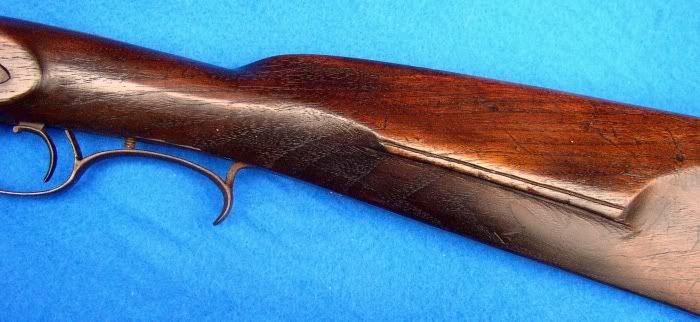
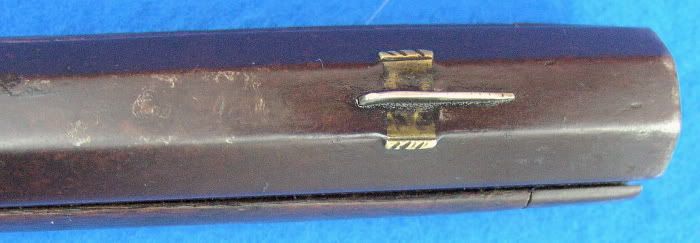

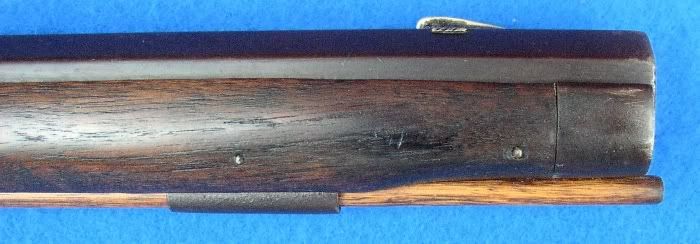

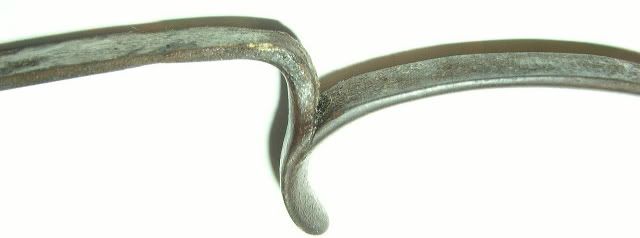

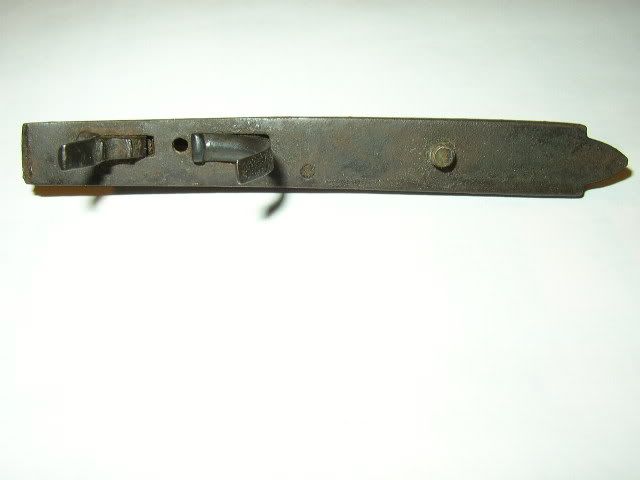
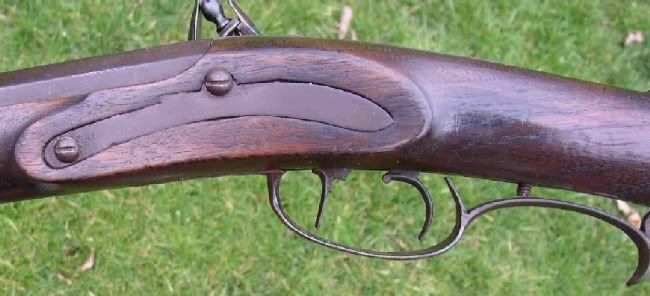
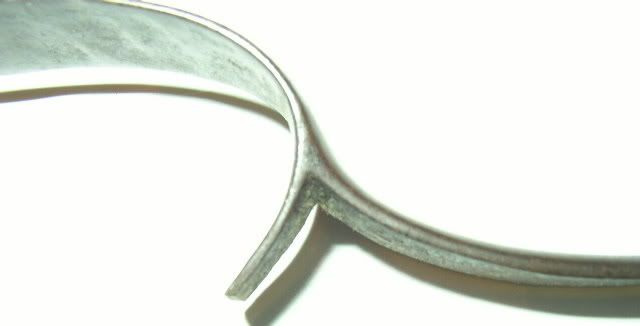
Comments:
One of the best looking iron guns around, in my opinion. Wish I could find a nice one like this that shows the best of Southern Mountain Rifle making. Everything about it is quite well done and shows a high degree of maker competence. Aside from the technical points, the architecture and finish are very pleasing.
-------------------------------------------------------------------------------------------------------
A very pleasing Gillespie with a helpful commentary.
-------------------------------------------------------------------------------------------------------
Really noble architecture and an apparent classic of the region.
-------------------------------------------------------------------------------------------------------
This rifle has dramatic architecture, among the best I've seen on a Southern mountain rifle. In my humble opinion, the better Southern mountain rifles have the finest architecture to be found anywhere, period!

